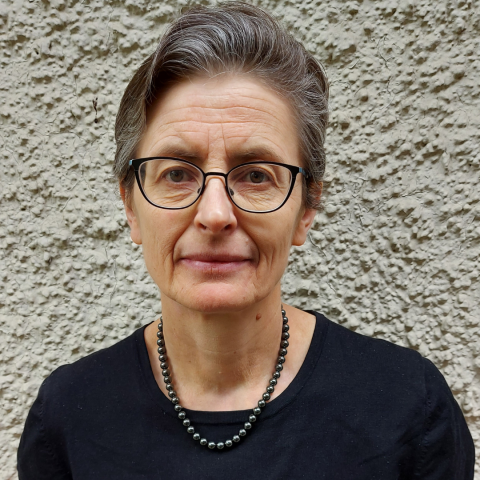
Remedy decision confirms gender discrimination ‘a systemic workplace issue’: Law’20 grad
For Irene Cybulsky, Law’20, life would undoubtedly have been easier if she’d just moved on and accepted things, rather than pursue her claim that in 2016 gender discrimination had played a significant role in her removal from a ground-breaking position as Canada’s first female head of a cardiac surgery division. In 2017, the prominent surgeon closed her practice and embarked on a new career path, enrolling in Queen’s Law. Prior to departing she decided to stand up for her own – and other women’s – rights, by filing an application against Hamilton Health Sciences (HHS) at the Human Rights Tribunal of Ontario (HRTO). Little did she appreciate how drawn out the process would be, but it soon became apparent to her that her legal training would come in handy.
In March 2021, Cybulsky learned that she had won on the liability aspect of her case. Another hearing process took place in the summer of 2022 and exactly two years after the liability decision, the HRTO released its remedy decision: awarding Cybulsky monetary damages of $26,500 and granting her request for a public interest remedy against HHS. The latter ruling directs the institution “to consult with an external independent specialist on gender discrimination and leadership” and lays out specific measures to provide education, ensure transparency in discrimination investigations, and assist in combating gender stereotyping.
Declaring satisfaction with the monetary remedy “for injury to dignity and self-respect” (which was at the upper limit awarded for damages in this category), Cybulsky says she was particularly pleased to see the public interest remedy awarded. “It showed that this case was not just about me, but about the problem that female leaders continue to face as a result of gender stereotyping,” she notes. “The main reason I pursued this litigation was to confirm that gender discrimination is a systemic issue.”
One disappointment was the lack of an apology as part of non-monetary damages. Cognizant of the HRTO’s reluctance to order individual people to apologize, Cybulsky points out that this case concerned a large, publicly funded corporation. “For me, an apology is both to have the institution recognize what was going on and take responsibility, as well as enable the re-establishment of a mutually respectful relationship. Unfortunately, at the end of this adversarial process there has been no post-litigation rapprochement.” Cybulsky says that she feels that even now she is viewed by HHS as a pariah for having launched and succeeded in her HRTO application.
By imposing an external source of authority on the institution, the public interest remedy acknowledged that a solution was not forthcoming from within HHS, Cybulsky continues. Also important, she believes, is the time stipulation of one year for HHS to fulfil the requirements. HHS must make gender discrimination a priority and get on with making changes.
“Increasingly, I think other institutions and corporations – not just hospitals and health care facilities – are facing this governance issue,” she suggests. “Acknowledging that gender bias exists, and then instituting strategies to combat it will be the first steps required.”
Cybulsky sees her role now as keeping the conversation going. On a micro level, in her current position as a lawyer with the federal Competition Bureau, she brings gender into discussions, for instance pointing out that gender must be a factor to consider when approaching negotiation techniques and strategy. On a more macro scale, she anticipates participating as a speaker at forums and other events. “I think it’s important to capitalize now, while the public’s memory of my case, profiled in the news and on social media, is fresh,” she says.
Although she would prefer to be remembered for her medical contributions, the fact that her name will more likely be associated with the fight for gender equality doesn’t deter Cybulsky. “It reached the point where I looked at the alternative of not speaking out, and having to live with that,” she says. “That’s where you have to find your personal level of tolerance.
“I hope my legacy is that people can talk openly about gender stereotyping and gender bias,” she continues. “The fact that my case showed this to be a systemic problem may enable women not only to recognize it as such, but to discuss it in their workspace without being identified as trouble-makers for having raised the subject.”
Reflecting on her Queen’s Law experience, Cybulsky expresses thanks to faculty members, including Beverley Baines, who supported her throughout the lengthy HRTO litigation. “Law school helped keep me sane, because I had to focus on and study for my classes,” she says now.
“I look back on my time at Queen’s in a very positive way.” Concepts from a course on Corporate Governance taught by Professor Robert Yalden have proved to be relevant to her work in her current position, she adds.
Asked about the potential impact of her human rights case, Cybulsky pauses before responding. “I think the educational component of the remedy including training for human resources is one important step,” she says. “Other steps will include providing mentorship and support of women along the leadership path and when holding leadership roles.”
Large institutions should not wait to be told to implement similar measures as HHS, Cybulsky adds. “With decisions such as mine, leaders cannot plead ignorance about this problem.”
While encouraging women to seek leadership positions, she underscores the need for establishing tangible, measurable benchmarks as to how they will be evaluated and ensure they will receive support for initiatives they hope to implement. Most importantly, says the quiet champion of workplace equality: “Keep questioning and seeking answers, rather than accepting the status quo!”
For more information about Irene Cybulsky and this case, read “Law’20 grad achieves victory for workplace gender equality,” posted to the Queen’s Law website in November 2021.
By Nancy Dorrance